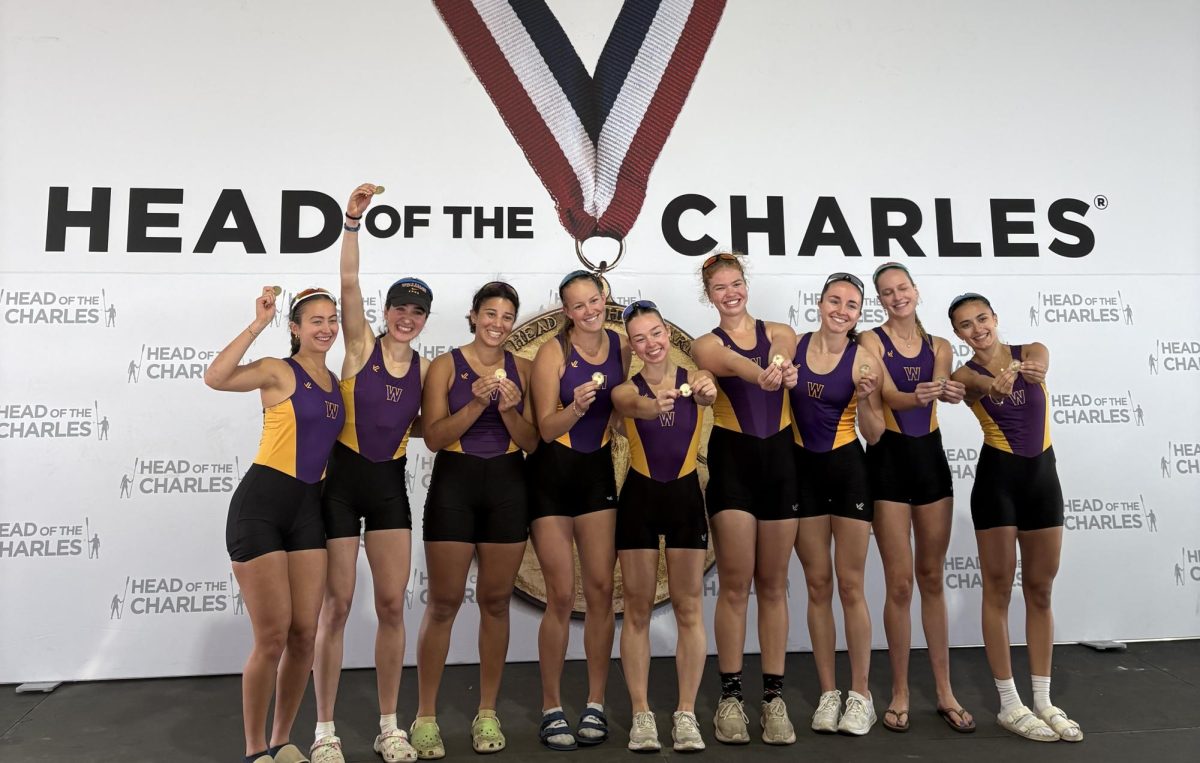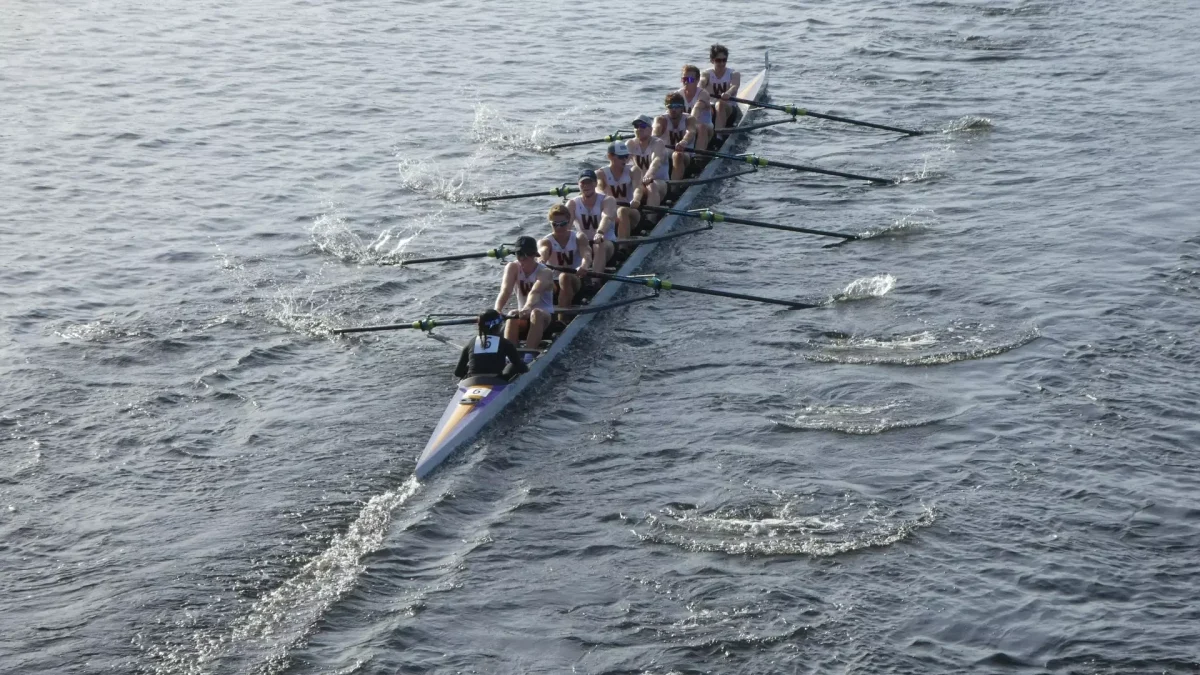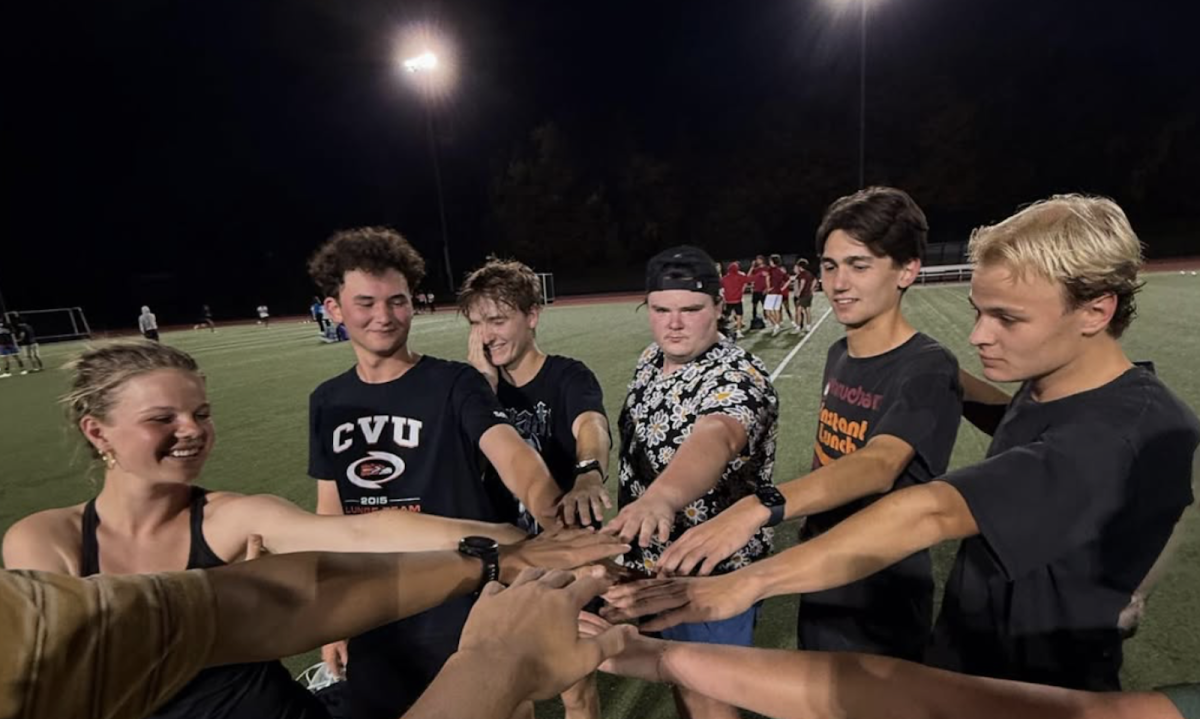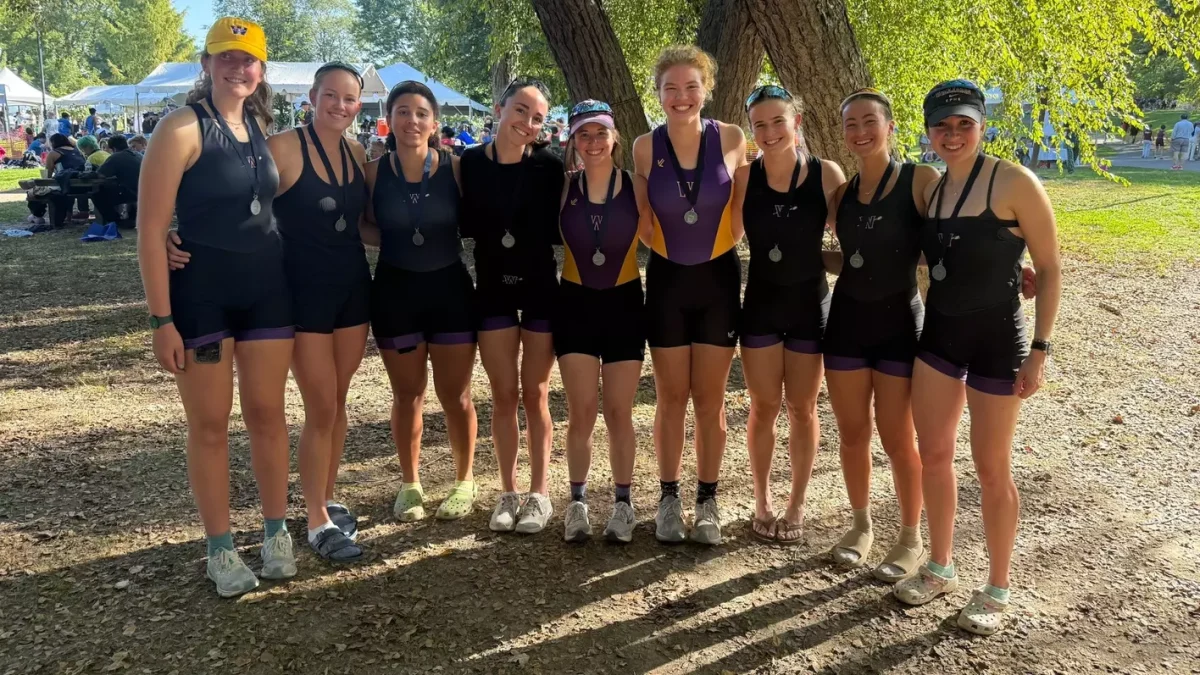Briana Scurry, a two-time Olympic gold medal-winning goalkeeper for the U.S. women’s national soccer team (USWNT), gave a talk at the College on Feb. 26, discussing her landmark career, the fight for women’s equality in professional soccer and her current work educating the public about the dangers of concussions.
Scurry spoke to a crowded Paresky Auditorium of students and Williamstown residents. Maggie Brody, an eighth grader from Williamstown who attended, said, “We all love soccer, and she’s such an amazing player.” Her friend Molly Sullivan added, “I’ve always been a fan of her and the 1999 [World Cup] team.”
Scurry began her talk by telling the story of her first Olympic experience: watching the 1980 U.S. men’s hockey team win gold, an event better known as the “Miracle on Ice.” Scurry, who still cries watching replays of the win, explained, “It inspired me when I was 8, and I wanted to be an Olympian.”
With the support of her parents, Scurry competed in athletics throughout high school. A goalkeeper on the soccer team, she also played other sports in the off-season, understanding that an athletic scholarship was her best shot at being able to finance a college education.
Ultimately, Scurry decided to attended UMass Amherst, where the best collegiate goalkeeper, Skye Eddy, played. “I wanted to go away to school and spread my wings,” Scurry said. “So, I did.”
Throughout her time at UMass Amherst, Scurry remained unaware that she would ever play professionally. After an NCAA championship final, in which future teammate Mia Hamm’s University of North Carolina team bested Scurry’s, she received a call from Anson Dorrance, then-coach of the U.S. women’s national team, inviting her to the 1993 training camp.
Scurry played on the team for three years before heading to Atlanta in 1996 to compete in the first-ever Olympic women’s soccer tournament, the culmination of many years of activism to bring female players to the Games. “So many people who would never actually play in that game fought to have that game in the Olympics,” Scurry told the audience. “And I found myself there.”
The American team went on to win the gold medal, which Scurry brought up on stage during her talk and passed around the auditorium, a gesture that was met with excitement from the crowd.
The Olympic victory marked the achievement of a long-held dream for Scurry. “This new idea sprung from [the win], that strong, athletic, powerful women were appealing and that people would pay to see them play,” she explained.
In preparation for the 1999 FIFA World Cup, which was to be hosted by the U.S., Scurry and other players fought to play in bigger arenas. “We said, ‘We are going to fill stadiums,’” Scurry explained. “And I didn’t mean small ones.”
At the World Cup, the team advanced to the final and took on China in what would become the most attended women’s sporting event ever, with over 90,000 fans in the Rose Bowl stadium. After a scoreless game brought the teams into a shootout, Scurry secured victory for the U.S., blocking one of China’s penalty shots after her team netted a perfect five out of five shots.
“That World Cup wasn’t just about us playing soccer,” Scurry said. “It was about us proving the naysayers wrong, claiming our worth and claiming our ability.”
Scurry won a second Olympic gold medal in 2004, before ending her playing career in 2010 after suffering a concussion at the age of 38. Following the injury, Scurry said that she went through a dark time in which she “couldn’t imagine that the girl in the [1999 World Cup video] could exist.”
She then turned that experience into activism, using her influence to bring awareness to head injuries. This brought Scurry before Congress in 2016 to testify about the impact of concussions on women athletes, who are more commonly diagnosed with concussions than their male counterparts. “As athletes we tend to minimize injuries, especially head injuries,” Scurry told the crowd. “I’ve been able to give a voice to the emotional side of it.”
For her performances at the World Cup and the Olympics, Scurry became the first black woman inducted into the National Soccer Hall of Fame in 2017.
Scurry ended her talk with a rallying call. “Whenever I do a speech, my goal is always to come for one person,” she said. “The reason I do that is because, later on, that person will do something amazing and I hope that something I said put a little bit of sunlight, a little bit of fire, on that.”
Student-athletes cited a variety of reasons for attending the talk. Casey Pelz ’19 said, “I think it’s really important to talk about women’s equality in sports, and it’s really cool to hear about that from a strong female athlete.” Campbell Day ’20, a member of the women’s soccer team, explained, similarly, that Scurry “is definitely a role model.”
Men’s soccer player Ben Barton ’21 attended in hopes of hearing about Scurry’s World Cup experience. “Everyone involved in soccer recognizes the accomplishment of winning the World Cup,” he said. “It’s not every day you get to hear someone talk about that.”
After the talk, Caroline Weinberg ’19 expressed how moving Scurry’s journey was. “She has an incredible story,” Weinberg said.
Pelz said, “It’s inspiring to hear another female athlete talk about her story and see your own experience reflected back to you but at an even higher caliber.”








